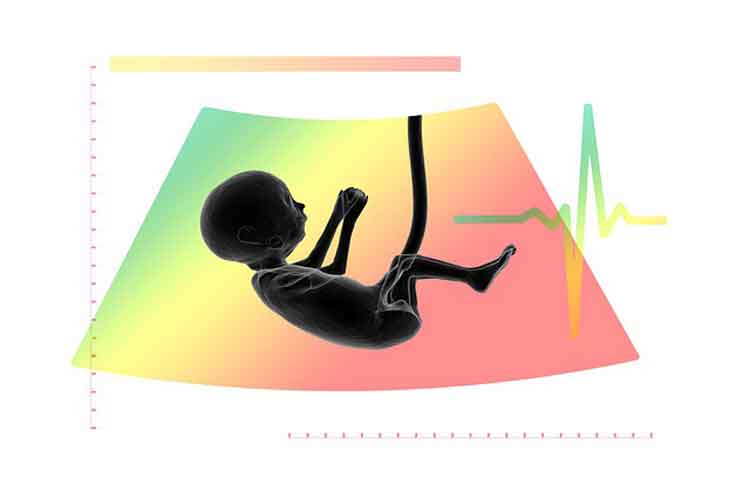Table of Contents
What to Teach Your Baby While Pregnant And How To Do It
For your baby, your womb is a sensory playground. The growing infant in the womb demonstrates that the kid learns a lot while living inside you. You will be astounded to study that your child has likings for foodstuff and melody that commence even though they’re still in the womb. In the womb, the baby begins to communicate with you about what he likes and dislikes.
Interacting with your baby in the womb is the finest way to teach him. When your child kicks, point to any part of your belly that you want him to kick and ask him to kick here, so he learns how to respond.
Reading stories to the baby in the pregnancy or conversing with the baby in the womb provides him the experience of learning things quickly.

Is It Possible to Teach Your Baby While Still In The Womb?
Yes, your baby’s education begins in the womb. Your kid is stimulated to interact by every sensation you have or even the slightest light landing on your stomach. Every experience you have while within the womb is shared with your kid, from the food you eat to the feelings you feel.
What Can Your Baby Learn While Still Inside The Womb?
It has been discovered that the infant recalls the noises and sensations he heard and tasted while in the womb. You’re more likely to recognise a sound after your kid is born if you’ve been listening to it during your pregnancy. After hearing the familiar voice, the child feels at ease. Your kid will become accustomed to the sound as well as the taste, learning to like and detest it. If you eat a certain cuisine while pregnant, your kid will acquire a liking for it and will enjoy it even after delivery.
Also Read: Eat This during Pregnancy to Have a Smart & Intelligent Baby
What Is Your Child’s Preferred Method Of Learning?
Inside the womb, your kid learns in a variety of ways. Mentioned below are few instances to make you understand better:
Playing Music
If you’re going to play music, keep it light and not too loud, as extreme songs or genres can cause your child to become stressed. So turn down the volume on whatever music you’re listening to. Mozart and classical music, as well as any prenatal music recording, are believed to stimulate brain development in newborns.
Talking and Emotions
In the womb, your kid is the first to notice your voice, and he or she spends the majority of his or her time with you. Every syllable you utter goes through your digestive tract and is regurgitated into your amniotic fluid, reaching the baby through your voice. It is necessary for you to talk kind and speak in a lovely manner to reassure the youngster that he is safe, so that he recalls your voice. Your youngster experiences the same emotions as you. Your baby is aware of your emotions when you cry, laugh, or feel delighted. Even at the time of his birth, he expresses his reactions to these feelings.
Taste and Smell
The youngster not only sees and hears things, but also smells and tastes them. Your baby’s sensory buds are fully grown by the seventh month. During this stage, his sense of smell is developing. Through the amniotic fluid, anything the pregnant mother eats reaches the baby. This acclimates him to the taste and smell of the foods you consume.
Also Watch: Mantras for Kids | Mantra for Memory, Intelligence, Success in Exams

Teaching Your Infant While He or She Is Still In the Womb
Here are some suggestions for speeding up your baby’s cognitive and sensory development while still in the womb:
Develop a Habit of Listening To Stories
According to studies, reading something to a child every day encourages him to listen to stories even after birth, and the practise of listening to stories also speeds up the process of sucking his nipple.
Exercise
Exercise releases endorphins, which make you feel happy and last for up to 8 hours in your womb. Being active increases the growth of neuron cells in your baby’s hippocampus by improving blood circulation in both your body and the womb. It has a 40 percent increase in learning and memory development.
Vitamin D
Get some sunshine outside! Apart from missing vitamin D-rich foods in your diet, this is an excellent approach to receive vitamin D. Vitamin D insufficiency has been related to autism and brittle bones. Sit in the sun for at least 20 minutes a day if you want your child to have strong bones and a healthy heart.
Massaging Your Baby Bulge
Your baby will be able to feel the sensations of touch and love that you make on the baby bump at around 20 weeks. Light strokes on your tummy can help to relax your baby’s nervous system. An interesting fact is that a child can tell the difference between his mother’s and father’s touch.
Talking To the Baby
Whether you’re telling him a storey or talking to him, the baby listens and pays attention to everything you say, especially after the 27th week, when the ear-brain connection is developed. Babies respond to words and tone of voice in the womb, so now is an excellent time to converse with your child.
Eat the Correct Foods
By about 12 weeks, your baby’s test bud is fully grown, and by the 25th week, he can taste food completely. The flavour of everything you consume reaches the baby in the pregnancy via the amniotic fluid. For example, if a pregnant woman consumes carrot juice during her pregnancy, she would prefer carrot foods when she is ready to eat after giving birth.
Whether you’re trying to conceive or are currently pregnant, your baby’s growth should begin as soon as possible within the womb. Don’t put too much pressure on yourself; instead, take one step at a time and give birth to your child.